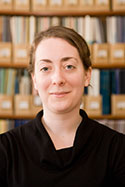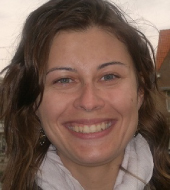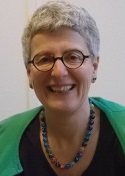The DYAD project
The dyadic wider impact of social care: support for older carers and the people they care for (The DYAD project)Support provided by family/friend carers is a vital part of care for people with dependency needs. Most carers are of working age. However, carers aged 65 years and older make up at least 20% of the seven million carers in the UK, and they are the fastest growing group of carers. Like all carers, older carers may find some aspects of caring are rewarding and positive, but there is evidence that suggests they find it especially difficult to balance caring whilst maintaining their own wellbeing and quality of life, e.g. by staying connected with the local community and sustaining friendships. They are also more likely to have their own health problems. They are also more likely to be spouses or partners, provide care for many hours per week, and help with personal care, like washing and dressing. They are less likely to recognise themselves as carers or to seek support from others, including formal support from social care services. The Care Act (2014) places a legal responsibility on local authorities to assess carers’ needs, meet any eligible needs for support, and promote carers’ wellbeing. Care practice has tended to identify carers’ needs separately (alongside and on an equal basis) to the people they support. However, this approach may not fully consider the complexity of caregiving relationships, especially caring for a spouse or partner and more intensive caregiving. This study seeks to understand the experiences of older carers and the people they care for – both individually and together. It will also look at the ways social care services may improve the quality of life for the carer, as well as the person being cared for. This work will identify the potential benefit(s) of having a wider view of the social care as supporting the person and their carer, as well as any challenges or barriers in achieving this. This will provide insights for policymaking, service development and commissioning (including of carers’ assessments). Interviews will be conducted with adults using community-based social care (e.g. home care) supported by a carer living with them, aged 65 years or over. The carer and the person who is supported will both be interviewed, separately.
Disclaimer: This study is independent research funded by the National Institute for Health Research School for Social Care Research . The views expressed are those of the author(s) and not necessarily those of the NIHR SSCR, the National Institute for Health Research or the Department of Health and Social Care. |
 | Grace Collins is a Research Officer at the PSSRU, University of Kent, which is part of the School of Social Policy, Sociology and Social Research (SSPSSR). She has worked at the PSSRU for six years on social care and health projects using mixed-method approaches. Her previous projects include Measuring Outcomes of Care Homes (NIHR, SSCR; 2015-2018), Shared Lives Evidence of Effectiveness (NIHR, SSCR; 2015-2018) and Measuring and Improving Care homes (NIHR, HS&DR; 2017-2020). From these projects, Grace brings knowledge and expertise of using the Adult Social Care Outcomes Toolkit (www.pssru.ac.uk/ascot) to collect the social care outcomes of older adults who receive care and their carers, especially in residential care homes, but also in community settings. Grace is also experienced in public and practitioner involvement in research and has previously held an oversight role as PPI co-lead at the PSSRU. |
 | Alisoun Milne is a Professor of Social Gerontology and Social Work, also within the School of Social Policy, Sociology and Social Research (SSPSSR) at the University of Kent. She has over 25 years’ experience in academia at the University of Kent, at the PSSRU, Tizard Centre and since 2010, the Social Work team (based at the Medway campus). She teaches on both undergraduate and postgraduate social work qualifying programmes. Before becoming an academic, Alisoun worked as a social worker and team manager in two local authorities in London for seven years. She is registered with Social Work England. Alisoun's particular research interests are mental health in later life, family carers, social work with older people and care homes. Alisoun is a co-Investigator on the DYAD project. |
 | Stacey Rand is a Senior Research Fellow at the PSSRU, University of Kent. She joined the Unit in 2012 to work on the Identifying the Impact of Adult Social Care (IIASC) project. This work has shaped and informed the Adult Social Care Outcomes Framework (ASCOF) in England. Since then, she has worked on a number of international and national research projects, including the development of easy-read, proxy-report and a number of translated versions of the Adult Social Care Outcomes Toolkit (www.pssru.ac.uk/ascot). Stacey has a particular interest in social care outcomes of community-based care for people with support needs and their carers. Stacey is the Principal Investigator on the DYAD project. |
 | Lisa Richardson is the Public Involvement and Engagement Manager at the PSSRU, University of Kent. She is supporting the public and patient involvement for this study. |
 | Barbora Silarova is a Research Associate who joined the Personal Social Services Research Unit (PSSRU) in September 2019. Her background is in clinical and health psychology and she has an extensive experience with both quantitative and qualitative research methods. During her time at University of Cambridge and University of Exeter she was involved in evaluation of behavioural interventions for prevention of cardiovascular disease, cancer, type 2 diabetes and cognitive decline. Since joining the PSSRU, Barbora’s research interest centres around quality of life of people with dementia and their carers as well as work-related quality of life of social care workers. As part of this project, Barbora will focus on the qualitative interviews with older carers/service users and data analysis/interpretation, along with Stacey and Grace. |
 | Wenjing Zhang is a Research Assistant at the Centre for Health Services Studies, University of Kent. Wenjing has experience using both qualitative and quantitative methods over 9 years working on policy and practice-oriented projects in the health and social care field. Her research expertise and interests focus on social care, ageing and comparative and international social policy. Wenjing leads the literature review work for the DYAD project. |
| Research Advisors | |
 | Christina Reading I am an independent artist, researcher, and writer who has worked on a variety of creative and academic research projects in academic and across the public, and voluntary sectors. My work is united by an interest and commitment to developing my own and other people’s personal development, creative learning and practice. I am currently co-authoring a book with Dr Jess Moriarty investigating ways to support wellbeing and creative recovery through that includes walking, mapping, dialogue storytelling, writing, drawing and painting to facilitate personal growth and change in relation to creativity. I am interested in the Dyad project because it places the relationship between the carer and the carer at the heart of its research and from my experience of being involved in the carer of an older person at home, this relationship is crucial to wellbeing. |
 | Helen Ramsbottom Helen is a Co-Researcher on the Dyads project. She has extensive experience of working within the voluntary sector and across health and social care. Helen is especially interested in policy, and how it can be influenced by practice. She works with people whose experiences and voices can inform policy and create change for the better. As a Research Advisor on another PSSRU project, MiCare, Helen has been involved in thinking about care relationships between staff and residents within the care home, how important this particular ‘dyad’ is, and how its impact can be described. Helen was drawn to this project both from a professional and personal point of view, having an older parent whose journey in later life illustrates the need for such research to capture the nuances and challenges of caring. |
| Journal Articles |
| Rand S, Collins G, Zhang W, Milne A, Silarova B. (2023). Applying Outcomes in Community-Based Social Care Practice in England. Journal of Long-Term Care DOI: 10.31389/jltc.169 |
| Zhang, W., Rand, S., Milne, A., Collins, G., & Silarova, B. (2022). The quality of life of older carers and the people they support: An international scoping review. Health & Social Care in the Community, 00, 1– 12. https://doi.org/10.1111/hsc.13916 |
| Rand S, Zhang W, Collins G, Silarova B, Milne A (2022) Applying a dyadic outcomes approach to supporting older carers and care-recipients: A qualitative study of social care professionals in England. Health and Social Care in the Community. http://doi.org/10.1111/hsc.13914. |
| Conference presentations and talks |
| Silarova B, Collins G, Rand S, Zhang W, Milne A. (2022) The Role of Adult Social Care Services in Individual and Dyadic Quality of Life: Perspectives From Older Carers and Individuals, The European Conference on Aging & Gerontology, 14 to 17 July 2022, London. |
| Rand S, Zhang W, Collins G, Silarova B, Milne A (2022), How might a dyadic approach improve social care-related quality of life of older carers? Evidence from interviews with social care professionals in England, British Society of Gerontology Conference, 6th to 8th July 2022, University of the West of England, online. https://kar.kent.ac.uk/95750/ |
| Rand S, Zhang W, Collins G, Silarova B, Milne A (2022), The Dyadic Impact of Social Care: Supporting older carers and the people they care for. NIHR School for Social Care Research Annual Conference, 26th April 2022, LSE, London. https://kar.kent.ac.uk/95865/ |
| Zhang W, Rand S, Milne A, Silarova B, Collins G (2021). The impact of social care on quality of life of older carers and the people they care for: a scoping review. British Society of Gerontology Conference, 7th to 9th July 2021, Lancaster University, online. https://kar.kent.ac.uk/91060/ |
| Rand S, Zhang W, Collins G, Silarova B, Milne A (2021). Supporting older carers and the people they care for: the dyadic impact of social care (DYADS), Supporting Carers during COVID-19: Messages from research in England, 26th May 2021, University of Bristol, online. https://www.youtube.com/watch?v=sdOPRgkMlcI |
| Podcasts |
| Dr Stacey Rand discusses the importance of considering older carers and service users as a dyad, both of whom often support each other. https://martinwebber.net/archives/podcast/35-supporting-older-carers |
| Further information |
| This project draws on the Adult Social Care Outcomes Toolkit. There is more information about this here: https://www.pssru.ac.uk/ascot/ |
Findings review event - September 26th 2022. Marking the end of the `Dyadic Impact of Social Care for Older Carers and the People they Support` project (DYADS) The presentations from the event above are also available to download below: Work Package One - The quality of life of older carers and the people they care for: a literature review - presented by Wenjing Zhang Work Package 2 Dyadic Impact of Social Care for Older Carers and the People they Support (DYADS) - presented by Stacey Rand Work Package Three The role of adult social care services in individual and dyadic quality of life: perspectives from older carers and individuals they support - presented by Grace Collins & Barbora Silarova |
For more information about the project, please contact Stacey Rand via S.E.Rand@kent.ac.uk